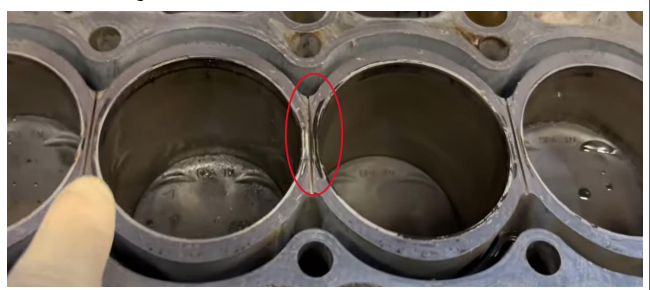Honda i-VTEC Lawsuit Alleges Turbo Engines Can’t Handle Extra Compression and Heat, Causing Coolant Leaks
Bissell v. American Honda Motor Co., Inc. et al.
Filed: December 6, 2024 ◆§ 3:24-cv-02286
A proposed class action lawsuit alleges the turbocharged 1.5-liter i-VTEC engines in certain Honda vehicle models were defectively designed.
California Unfair Competition Law California Consumers Legal Remedies Act Song-Beverly Consumer Warranty Act
California
A proposed class action lawsuit alleges the turbocharged 1.5-liter i-VTEC engines in certain Honda models were improperly designed by the company, such that they allow coolant to leak into the engine cylinders.
Don’t miss out on settlement news like this. Sign up for ClassAction.org’s free weekly newsletter.
The 80-page Honda VTEC lawsuit explains that because turbocharged engines produce far greater internal pressure and heat than a naturally aspirating engine, they must be designed and made so as to properly tolerate such forces while being adequately sealed and cooled to prevent internal damage and engine failure.
According to the Honda class action suit, the i-VTEC engines at issue—found in 2018-2022 model year Honda Accords, 2016-2022 Honda Civics and 2017-2022 Honda CR-Vs (class vehicles)—are unable to properly manage the increased compression and heat of a turbocharged engine, which causes coolant to leach through and collect in the grooves on the engine’s cylinder head. The leached coolant will degrade the engine’s gasket, allowing coolant to leak into the engine’s cylinders, the filing says.

The Honda coolant leaks can result in an insufficient amount of coolant remaining in the system to cool the engine, which can cause overheating, warping, seizure and fire, the case stresses. Moreover, coolant leaks can cause engine misfires and a loss of motive power, and can contaminate engine oil, leading to corrosion and excessive, premature engine wear, the complaint says.
More broadly, the Honda i-VTEC coolant leaks pose a significant safety risk, with some drivers reporting that their vehicles lost power on highways, leaving them “stuck coasting” amid high-speed traffic or stranding them in an unsafe location, the suit shares.
The lawsuit alleges that although the apparent engine defect is covered by Honda’s warranty, the automaker refuses to honor its warranty obligations.
“Because of the grave risks the Engine Defect poses, a vehicle that suffers from the Engine Defect is not fit for its ordinary purpose and does not pass without objection in the trade, and renders the Class Vehicles substantially less drivable, useable, safe, and valuable,” the lawsuit contends. “This is especially true for the Class Vehicles, which were marketed as safe and reliable family vehicles.”
Per the case, Honda has publicly acknowledged the i-VTEC engine defect through communications with dealerships since 2017, and through “cheap design changes” made in 2020 in an unsuccessful effort to eliminate the problem.
“Despite knowledge of the Engine Defect, Honda did not offer repairs for customers suffering from the Defect, nor did Honda cover any attempted repairs under warranty,” the case claims.
The Honda engine defect lawsuit looks to cover all current and former owners or lessees of a 2018-2022 model year Honda Accord, 2016-2022 Honda Civic or 2017-2022 Honda CR-V that was bought or leased in California.
Check out our class action rebates page full of open class action settlements, including some that require no proof.
Video Game Addiction Lawsuits
If your child suffers from video game addiction — including Fortnite addiction or Roblox addiction — you may be able to take legal action. Gamers 18 to 22 may also qualify.
Learn more:Video Game Addiction Lawsuit
Depo-Provera Lawsuits
Anyone who received Depo-Provera or Depo-Provera SubQ injections and has been diagnosed with meningioma, a type of brain tumor, may be able to take legal action.
Read more: Depo-Provera Lawsuit
How Do I Join a Class Action Lawsuit?
Did you know there's usually nothing you need to do to join, sign up for, or add your name to new class action lawsuits when they're initially filed?
Read more here: How Do I Join a Class Action Lawsuit?
Stay Current
Sign Up For
Our Newsletter
New cases and investigations, settlement deadlines, and news straight to your inbox.
Before commenting, please review our comment policy.